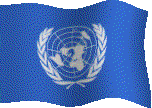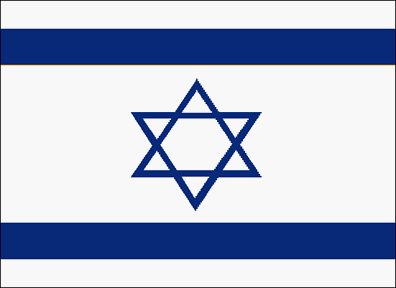
From left, senior political science major Salvatore D’Angelo and senior journalism major Ben Smith compete in Model UN in New York. Rider took home the highest honor of “Outstanding Delegation.”
Representing Israel, the Rider University Model U.N.
Team took home the highest honor on March 29 when it
received an “Outstanding Delegation,” which is only
awarded to 21 of the more than 200 delegations. This is
the fifth consecutive year Rider has earned this
prestigious recognition.
The delegations are split into pairs and placed into committees. One committee Rider was a part of was the International Atomic Energy Committee. The team discussed the ongoing issue of North Korea’s nuclear program.
The National Model U.N. website says that “outstanding delegations are those who cooperate and stay in the policy/character of their assigned member state. Yelling, standing on chairs and other examples of unprofessional behavior are not characteristics of model diplomats.”
Senior journalism and global/multinational studies major Sade Calin and senior global/multinational studies, international business and economics major Alex Simon said that being Israel was both a blessing and a hindrance.
“We had a harder time than most teams because it is very well-known that Israel doesn’t have a lot of allies right now,” Calin said. “But it gave us more opportunities to be diplomatic. For instance, we were able to work with Palestine in various ways, but we had to deal with sabotage from other delegations.”
“We knew that when the conference approached, we needed to do anything and everything to stand out to the judges to get recognized, and that we did,” Simon said.
Dr. Barbara Franz, associate professor of political science and faculty adviser for the Model U.N. Team, acts as an “external eye” for the team. She instructs them on content and grades them, but everything else is up to the team. She listed the delegation’s greatest strengths as teamwork and brainstorming.
“They get along great with each other,” Franz said. “They are able to teach themselves and each other to develop strategies that will work in the conference.”
The conference lasted for a week and included committee and general meetings. It concluded with a large Delegate Ball.
“We would finish sessions around 10 p.m. and then debrief until 1-ish,” Calin said. “Sometimes we wouldn’t get back to the hotel until after 2 a.m., and we’d have to be up by 7. Some people get the impression that it’s one big party, but that’s after a week of 18-hour days. Everything you are doing is under various microscopes. It’s all very stressing.”
The delegations are usually so busy that communication with the outside world is virtually non-existent. Calin said that she didn’t even call her parents for the duration of the conference.
Calin also stressed the competitive atmosphere at the conference, which was made up of more than 200 delegations from universities around the world. She described how the judges can make or break a delegation’s performance by singling them out for a job well done or a crucial mistake.
“Individuals get noticed for good and bad things,” Calin said. “We got praised by the judges, which is a big deal. If they shut you down, no one wants to work with you. I was concerned about things falling apart at the end. You work all week and can have it flushed down the drain within two minutes.”
Despite the intense stress and competitive atmosphere, Simon found the experience positive and life changing.
“Being in Model U.N. has given me courage when speaking in front of others, as well as learning what foreign service officers do on a daily basis and why international relations is so important in today’s world,” Simon said. “Not only did I gain a lot of knowledge about the U.N., but I have also switched my career goals and applied to take the foreign service officer test in June to start my path in becoming a diplomat for the U.S. government.”

